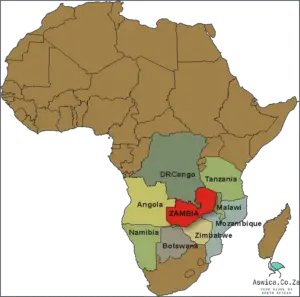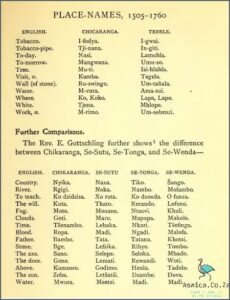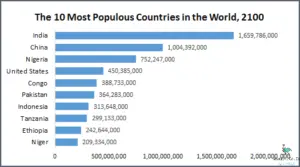
The first Europeans to colonize South Africa were the Dutch, who arrived in the 1600s. The Dutch East India Company established a settlement at Cape Town, which became the capital of the Dutch colony. The Dutch were followed by the British, who established their own colony in the early 1800s. The British and the Dutch colonies were later united into the Union of South Africa, which became a republic in 1961.
Contents
When Was South Africa Colonized
South Africa was colonized by the Dutch in the mid-17th century. The Dutch East India Company established a station at the Cape of Good Hope in 1652 as a waypoint for ships travelling to East Asia. They gradually built up the region and established the Dutch-speaking Cape Colony in 1671. The British then arrived in 1795 and took control of the Cape Colony in 1806. They introduced the Union of South Africa in 1910, which was a federation of four British colonies in the region. The Union of South Africa gained independence from Britain in 1931 and changed their name to the Republic of South Africa in 1961. In 1994, South Africa’s first multiracial elections were held and the African National Congress was voted into power, marking the end of South Africa’s colonial rule.
Indigenous People of South Africa
South Africa has a long and complex history of colonization. Starting in the early 16th century, the Portuguese were the first Europeans to explore the region. They were followed by the Dutch, and then the British, who would eventually gain control of the majority of the country.
The indigenous people of South Africa, known as the Khoisan, were among the first to suffer the effects of colonization. These people had been living in the area for thousands of years before the arrival of Europeans. The Khoisan were pushed off their lands as the colonists took over, and were soon subjected to slave labor and other forms of exploitation.
The British took full control of the Cape Colony in 1815 and began to spread their influence throughout the region. This was done through a system of settler colonialism, which saw the establishment of new towns and cities, as well as the displacement of indigenous people. The British also implemented a system of racial segregation known as apartheid, which lasted until 1994.
The legacy of colonialism in South Africa has had a profound impact on the country’s history. It has led to a deep divide between different racial and ethnic groups, and has also caused economic and political instability. However, the end of apartheid in 1994 brought a new era of hope and progress, and the country is now working towards a more inclusive and equitable society.

The indigenous people of South Africa have always been resilient in the face of oppression. They have fought for their rights and for the recognition of their culture, and continue to do so today. The Khoisan are an important part of South Africa’s history and culture, and their presence is a reminder of the country’s past.
Timeline of South African Colonization
The history of South African colonization is one of complexity and tragedy. From its beginnings in 1652 with the Dutch East India Company’s establishment of a refreshment station at the Cape of Good Hope, to the Union of South Africa in 1910, this timeline of colonization has been filled with moments that shaped the nation and its people.
The Dutch East India Company’s arrival marked the beginning of the colonization of South Africa. The first permanent European settlement was established in 1657, and soon after, the Dutch controlled most of the Cape Colony. While this period was characterized by European settlers being granted land, it was also marked by the exploitation of the local Khoisan population and of slaves brought by the Dutch from elsewhere in the world.
In 1795, the British wrested control of the Cape Colony from the Dutch, and in 1806, the British Empire annexed the Cape. This period saw an increase in the influx of settlers from Britain, as well as the expansion and exploitation of the slave trade. The British would remain in control of the Cape until 1910.
In 1820, the British settlers began to expand further into the interior of South Africa, leading to the Great Trek of 1836-1840, when the Voortrekkers left the Cape in search of a new homeland. This period saw the formation of new states, such as the Orange Free State and the Transvaal Republic.
In 1877, the United Kingdom annexed the Transvaal, and in 1879 the First Anglo-Boer War began. This conflict saw the Boers defeat the British, who were forced to recognize the independence of the Transvaal and the Orange Free State.
The Second Anglo-Boer War broke out in 1899, and this time the British prevailed. This war marked the beginning of the Union of South Africa in 1910, and the end of the Boer Republics.
The Union of South Africa was a British dominion until 1961, when it became independent. This period saw the implementation of the Apartheid system of racial segregation and oppression, which lasted until 1994.

Since 1994, South Africa has been a democracy, and the nation has been working to reconcile its past and move forward. Though the history of South African colonization is complex and often tragic, it has shaped the nation and its people in profound ways.
Impact of Colonization on South African Society
The history of South Africa is one of colonization and conflict. Since the dawn of the modern era, the region has been subject to multiple foreign occupations, resulting in a complex and often turbulent legacy. From the 16th century onward, Dutch and British colonizers sought to claim the lands of South Africa for their own, resulting in dramatic changes to the region’s societies, economies, and cultures.
In 1652, the Dutch East India Company established the first permanent European settlement at the Cape of Good Hope, beginning a period of Dutch colonial rule. This was followed by British colonization in 1806, when Britain annexed the Cape Colony and renamed it the Cape of Good Hope Province. Over the following decades, the British pushed inland, claiming large swathes of land for the British Empire and waging war against the indigenous peoples in the process.
The impact of colonialism on South African society was profound. Colonizers brought with them their own languages, religions, and customs, which eventually became dominant over the original cultures of the region. The Dutch and British introduced new systems of law and governance, a racialized labor system, and a host of other policies and practices that shaped South African society for centuries to come.
Colonization also had a devastating impact on traditional South African cultures. Indigenous groups were forcibly displaced and dispossessed of their land, while their languages and customs were suppressed. This led to a sharp decline in the social and economic power of many indigenous communities, and contributed to a deep-rooted sense of loss and marginalization that persists to this day.
The legacy of colonization in South Africa remains strong. The country continues to be plagued by racial and economic inequality, with the effects of colonization still felt in many areas of society. However, in recent years there has been a growing acknowledgement of the impact of colonialism, and a renewed effort to address its lingering effects and create a more equitable society.
Conclusion
It is generally believed that the first Europeans to arrive in South Africa were the Portuguese, who settled in the Cape in the early 16th century. However, there is evidence that the Dutch may have settled in the Cape as early as the 15th century. In any case, it was not until the early 17th century that the first permanent European settlements were established in South Africa.
The Dutch East India Company was the first to establish a permanent presence in South Africa, with the founding of Cape Town in 1652. The Dutch were followed by the British, who settl




